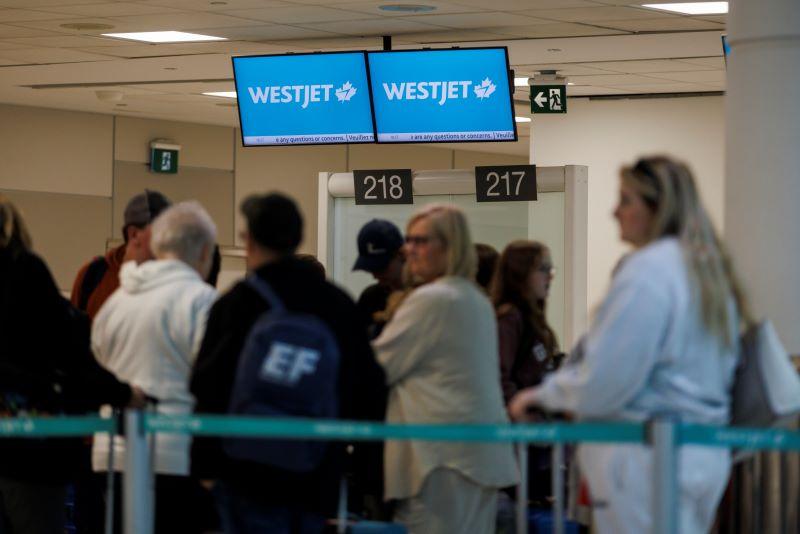
Travelers waiting at a WestJet counter at Toronto Pearson International airport on June 30, 2024 in Toronto, Canada amid flight cancellations due to the WestJet Airlines mechanics strike.
Credit: Cole Burston / Stringer / Getty Images
WestJet mechanics followed through with a strike notice over the weekend, a work stoppage previously believed averted after government intervention. The strike, initiated on June 28, ceased on June 30, as the two parties reached a tentative agreement (TA). More than 800 flights were canceled over...
Subscription Required
WestJet Mechanics Weekend Strike Ends With Tentative Agreement is published in Aviation Daily, an Aviation Week Intelligence Network (AWIN) Market Briefing and is included with your AWIN membership.
Already a member of AWIN or subscribe to Aviation Daily through your company? Login with your existing email and password
Not a member? Learn how to access the market intelligence and data you need to stay abreast of what's happening in the air transport community.





